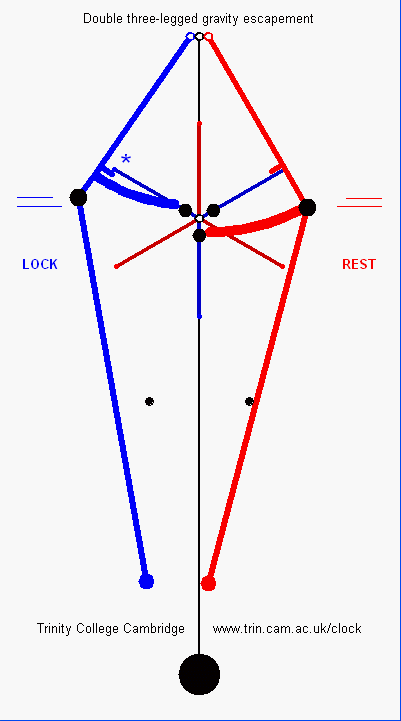
- 17 Jan 2011 [08:50]
- pigeon correction, +1m21s. I am often asked - surely the virtue of the gravity escapement is that it is immune to disturbances on the hands like wind, snow, birds - yes, but there is a limit. If the pigeon provides a reverse torque greater than the forward torque provided by the drive weight then the clock will stop. It is like the cruise control in a car, if there is a head wind or if you go up a hill then the control works fine but if the wind is too strong or if the hill is too steep and it overpowers the engine then the car will slow down. I have done this calculation [link] and it turns out that perhaps one, probably two pigeons sitting on the minute hand at quarter to the hour will stop the clock. Of course, sitting on the hand at quarter past the hour adds power and up to a point the escapement can cope. I suspect that the escapement has jumped on at least one occasion
- 17 Jan 2011 [08:49]
- [link] perhaps due to a pigeon?
Download data





